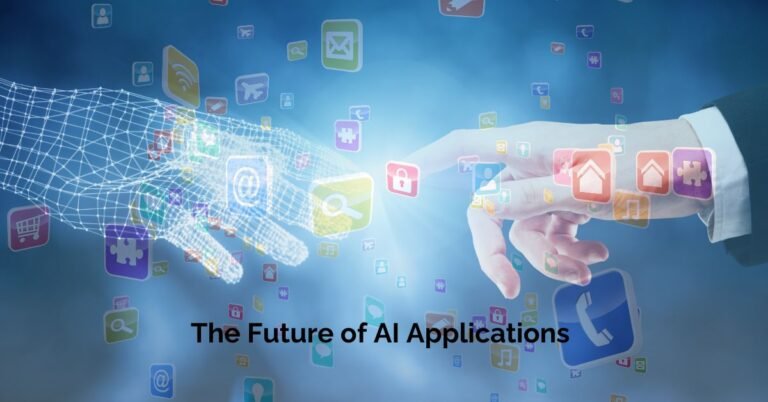Written by Ameerah
Table of Contents
ToggleAI Software for Customer Engagement and Experience
Customer Engagement refers to the ongoing interaction and emotional connection between a customer and a brand. It encompasses various touchpoints, from initial awareness to purchase, support, and loyalty.
Customer Experience (CX) is the broader perception and feelings a customer has about their entire journey with a brand. It’s shaped by every interaction, reflecting the overall quality and effectiveness of customer engagement efforts.
These two concepts are tightly intertwined. Positive engagement fosters a positive experience, and a positive experience leads to increased engagement. Businesses strive to create seamless, personalized, and engaging experiences that build customer loyalty and drive growth.
How AI is Transforming Customer Engagement and Experience:
AI is revolutionizing CX by:
- Personalization: AI analyzes vast data to understand individual preferences and tailor offerings, interactions, and content for each customer.
- Predictive insights: AI forecasts customer needs and behavior, allowing proactive support, personalized recommendations, and targeted marketing.
- 24/7 Availability: AI-powered chatbots and assistants offer instant support, resolving queries quickly and efficiently.
- Enhanced efficiency: AI automates repetitive tasks, freeing human agents for complex issues and building deeper customer relationships.
- Sentiment analysis: AI gauges customer emotions from text and voice, enabling businesses to understand feedback, address concerns, and improve satisfaction.
Let’s delve deeper into specific AI applications:
- Benefits:
- Provide 24/7 support, reducing wait times and frustration.
- Answer simple questions, freeing human agents for complex issues.
- Collect customer data and feedback for improvement.
- Examples:
- Banking chatbots answer account inquiries and process transactions.
- Airline virtual assistants help with booking, check-in, and boarding.
- Retail chatbots provide product information and personalized recommendations.
- Recommendation Engines:
- Benefits:
- Suggest relevant products and services based on individual preferences and purchase history.
- Increase conversion rates and customer satisfaction.
- Discover hidden connections and trends in customer data.
- Examples:
- Streaming platforms recommend movies and shows based on watch history.
- E-commerce websites suggest products users might like based on past purchases.
- Travel sites recommend destinations and experiences based on user interests.
- Sentiment Analysis:
- Benefits:
- Understand customer emotions from text and voice interactions (surveys, reviews, social media).
- Identify areas for improvement in customer service and product offerings.
- Proactively address negative sentiment and prevent churn.
- Examples:
- Analyze customer feedback to understand pain points and satisfaction levels.
- Monitor social media mentions to identify brand sentiment and potential issues.
- Personalize marketing campaigns based on customer sentiment towards specific products or services.
Remember:
While AI offers immense potential, it’s crucial to use it ethically and responsibly. Transparency, user control over data, and human oversight are essential for building trust and ensuring AI enhances, not replaces, human connection in customer interactions.
Chatbots & Virtual Assistants: Transforming Customer Interactions
In today’s fast-paced digital world, businesses are constantly looking for ways to improve customer experience and boost efficiency. Chatbots and virtual assistants (VAs) are emerging as powerful tools that can automate tasks, provide 24/7 support, and personalize customer interactions.
What are Chatbots & Virtual Assistants?
Chatbots and VAs are computer programs that simulate conversation with humans. They can be text-based or voice-enabled, and they can be integrated into a variety of platforms, such as websites, messaging apps, and social media.
How do Chatbots & Virtual Assistants Work?
Chatbots and VAs typically use natural language processing (NLP) to understand user queries and respond naturally. They may also use machine learning to improve their responses over time.
Benefits of Chatbots & Virtual Assistants
- 24/7 Availability: Chatbots and VAs can provide support to customers around the clock, even outside of business hours.
- Improved Efficiency: Chatbots can automate repetitive tasks, such as answering frequently asked questions, freeing up human agents to handle more complex inquiries.
- Personalized Interactions: Chatbots can personalize interactions with customers by remembering their past conversations and preferences.
- Reduced Costs: Chatbots can help businesses reduce costs by automating tasks and reducing the need for human agents.
7 Popular Chatbot & Virtual Assistant Platforms
Several chatbot and VA platforms are available, each with its own unique features and benefits. Here are a few of the most popular:
- Ada: Ada is a conversational AI platform that combines NLP with human oversight for complex inquiries. It is a good option for businesses that need a chatbot to handle complex customer support issues.
- Amelia: Amelia is an intelligent virtual assistant with self-service capabilities and proactive engagement. It is a good option for businesses that want a chatbot to help customers find information and complete tasks on their own.
- AmplifAI: AmplifAI is an omnichannel chatbot with sentiment analysis and live agent handoff support. It is a good option for businesses that want a chatbot that can handle a wide range of customer interactions.
- Botpress: Botpress is an open-source, no-code platform for building custom chatbots and agents. It is a good option for businesses that want a flexible and affordable chatbot solution.
- Drift: Drift is a conversational marketing platform that combines chatbots with live chat and video meetings. It is a good option for businesses that want to use chatbots to generate leads and qualify sales prospects.
- Help Scout Beacon: Help Scout Beacon is a conversational support tool enabling self-service and proactive outreach. It is a good option for businesses that want to use chatbots to provide self-service support to customers.
- Intercom Assist: Intercom Assist is a proactive conversational support with features like guided product tours. It is a good option for businesses that want to use chatbots to onboard new customers and teach them how to use their products.
Choosing the Right Chatbot & Virtual Assistant Platform
The best chatbot or VA platform for your business will depend on your specific needs and budget. Consider the following factors when making your decision:
- The complexity of your customer interactions
- Your budget
- Your technical expertise
- The features you need
The Future of Chatbots & Virtual Assistants
Chatbots and VAs are still in their early stages of development, but they have the potential to revolutionize the way businesses interact with their customers. As NLP and machine learning technologies continue to improve, chatbots and VAs will become more sophisticated and capable of handling even more complex interactions.
AI-Powered Recommendation Engines: Transforming the Customer Experience
In today’s digital age, customers are bombarded with choices. With so many products and services available, it can be difficult for them to know what to buy or try. This is where recommendation engines come in. Recommendation engines use artificial intelligence (AI) to analyze customer data and suggest products or services that they are likely to be interested in.
7 AI-powered recommendation engines
There are many different AI-powered recommendation engines on the market, each with its unique strengths and weaknesses. In this article, we will take a closer look at some of the most popular recommendation engines, including:
- Amazon Personalize: A machine learning-based engine from Amazon Web Services that can be used to generate personalized product recommendations.
- Bluecore: A marketing platform with AI-powered personalization features for email, web, and mobile.
- Movable Ink: A personalized content and recommendation engine for email marketing.
- Netflix: An advanced recommendation engine for movies and TV shows, leveraging collaborative filtering and machine learning.
- Pinterest: A visual discovery platform with AI-powered recommendations based on user interests and engagement.
- RetailNext: An AI-powered customer behavior analytics and personalization platform for retail.
- Shopify Product Recommendations: A built-in product recommendation engine for Shopify stores.
What are the benefits of using AI-powered recommendation engines?
There are many benefits to using AI-powered recommendation engines, including:
- Increased sales and conversions: By recommending products or services that customers are likely to be interested in, recommendation engines can help businesses increase sales and conversions.
- Improved customer satisfaction: By providing customers with relevant recommendations, recommendation engines can help improve customer satisfaction and loyalty.
- Reduced churn: By recommending products or services that customers are likely to continue using, recommendation engines can help reduce churn.
- More efficient marketing: Recommendation engines can help businesses target their marketing campaigns more effectively by identifying customers who are most likely to be interested in their products or services.
How do AI-powered recommendation engines work?
There are several different ways that AI-powered recommendation engines work, but some of the most common methods include:
- Collaborative filtering: This method recommends products or services to customers based on the preferences of other similar customers.
- Content-based filtering: This method recommends products or services to customers based on the content of the products or services themselves.
- Hybrid approaches: Many recommendation engines use a hybrid approach that combines collaborative filtering and content-based filtering.
What are the limitations of AI-powered recommendation engines?
It is important to note that AI-powered recommendation engines are not perfect. Some of the limitations of these engines include:
- Data bias: Recommendation engines can be biased if they are trained on data that is not representative of the target population.
- Cold start problem: Recommendation engines can have difficulty making recommendations for new users or products or services that have not been rated by many users.
- Privacy concerns: Recommendation engines collect and store a lot of data about customers, which can raise privacy concerns.
Which AI-powered recommendation engine is right for you?
The best AI-powered recommendation engine for you will depend on your specific needs and budget. Here are some factors to consider when choosing a recommendation engine:
- The size and type of your business: If you have a large business with a lot of data, you may need a more sophisticated recommendation engine.
- Your budget: Recommendation engines can range in price from free to very expensive.
- Your technical expertise: Some recommendation engines are easier to set up and use than others.
Sentiment Analysis: Understanding What People Think About Your Brand
In today’s digital age, it’s more important than ever for businesses to understand how their customers feel about their brand. Sentiment analysis is a powerful tool that can help you do just that. By analyzing text data from social media, reviews, surveys, and other sources, sentiment analysis can help you identify positive, negative, and neutral sentiments toward your brand. This information can be used to improve your marketing campaigns, customer service, and product development.
What is AI sentiment analysis?
AI sentiment analysis is a type of natural language processing (NLP) that uses machine learning to automatically identify the sentiment of text data. This can be done by looking at the words used, the grammar, and the overall tone of the text. AI sentiment analysis can be used to analyze text data from a variety of sources, including:
- Social media posts
- Online reviews
- Customer service tickets
- Surveys
- Chat logs
Benefits of using AI sentiment analysis
There are many benefits to using AI sentiment analysis for your business, including:
- Improved customer satisfaction: By understanding how your customers feel about your brand, you can take steps to improve their satisfaction. This could involve addressing negative feedback, improving your customer service, or developing new products and services that meet their needs.
- Enhanced marketing campaigns: Sentiment analysis can help you target your marketing campaigns more effectively. By understanding which messages resonate with your target audience, you can create more effective marketing campaigns that are more likely to generate leads and sales.
- Better product development: Sentiment analysis can help you identify what your customers like and dislike about your products and services. This information can be used to develop new products and services that are more likely to be successful.
- Reduced risk: Sentiment analysis can help you identify potential crises before they happen. By monitoring social media and other online sources, you can identify negative sentiment early on and take steps to address it.
Some of the popular AI sentiment analysis tools are:
- Brand24: Brand24 is a social media listening and sentiment analysis platform that helps you track mentions of your brand across social media, news, blogs, and other online sources. It also provides sentiment analysis, which helps you to understand how people are feeling about your brand.
- Clarabridge: Clarabridge is an enterprise-grade customer experience intelligence platform with AI-powered sentiment analysis. It helps you collect and analyze customer feedback from a variety of sources, including social media, surveys, and email.
- MonkeyLearn: MonkeyLearn is a text analysis platform with sentiment analysis API and sentiment classification models. It is easy to use and does not require coding.
- OpinionLab: OpinionLab is a speech and text analytics platform with sentiment analysis capabilities. It can be used to analyze text data from a variety of sources, including social media, surveys, and call center recordings.
- Synthesio: Synthesio is a social media and brand reputation management platform with sentiment analysis functionality. It helps you track brand mentions, identify influencers, and measure sentiment over time.
Choosing the right AI sentiment analysis tool for your business
When choosing an AI sentiment analysis tool for your business, it is important to consider your needs and budget. Some factors to consider include:
- The size of your business: If you are a small business, you may not need a feature-rich enterprise-grade tool. There are many affordable sentiment analysis tools available for small businesses.
- Your budget: Sentiment analysis tools can range in price from free to tens of thousands of dollars per year. Choose a tool that fits your budget and needs.
- The features you need: Some sentiment analysis tools offer more features than others. Consider the features that are important to you, such as the ability to track sentiment over time, identify influencers, and analyze text data from multiple sources.
- Ease of use: Some sentiment analysis tools are easier to use than others. If you need to become more familiar with NLP, you may want to choose a tool that is easy to learn and use.
AI sentiment analysis is a powerful tool that can help you understand how your customers feel about your brand. By using this information, you can improve your marketing campaigns, customer service, and product development. When choosing an AI sentiment analysis tool for your business, it is important to consider your needs and budget.
Navigating the Ethical Landscape of AI:
While AI offers immense potential, responsible and ethical implementation is crucial. Consider these key points:
- Transparency: Be transparent about how AI is used and ensure user control over data.
- Human oversight: Maintain human involvement in key interactions for trust and empathy.
- Data privacy: Implement robust data security measures and respect user privacy rights.
- Bias mitigation: Ensure AI algorithms are fair and unbiased to avoid discrimination.
Conclusion: AI Software for Customer Engagement and Experience
AI is rapidly transforming the customer engagement and experience landscape. By embracing AI responsibly and strategically, businesses can create personalized, efficient, and delightful customer journeys, fostering loyalty and driving growth. Remember, the human touch remains irreplaceable, and AI should be used to augment, not replace genuine human connection.
FAQs about AI Software for Customer Engagement and Experience
- What are the different types of AI software for customer engagement and experience?
Answer: Chatbots, virtual assistants, recommendation engines, sentiment analysis tools, marketing automation platforms, and customer service AI are some prominent examples.
- How can AI software personalize customer interactions?
Answer: AI analyzes past purchases, browsing behavior, and demographics to suggest relevant products, and content, and tailor interactions based on individual preferences.
- What are the benefits of using chatbots and virtual assistants in customer service?
Answer: 24/7 availability, handling simple inquiries, collecting customer data, and reducing costs are some key benefits.
- How do recommendation engines work, and what are the benefits for businesses?
Answer: Recommendation engines use collaborative filtering, content-based filtering, or hybrid approaches to suggest relevant items, increasing sales, and customer satisfaction, and reducing churn.


























